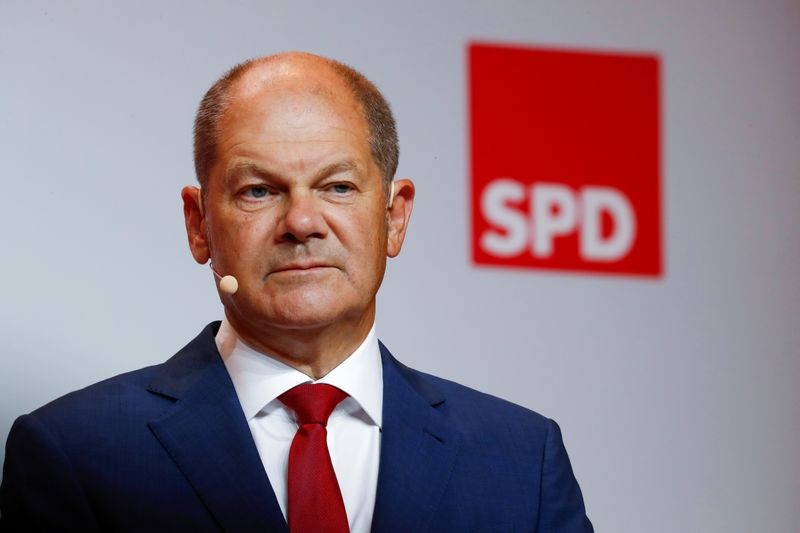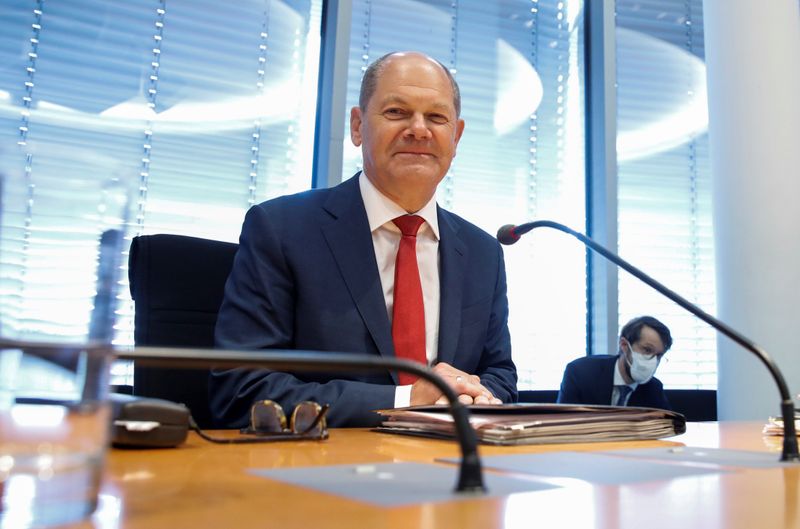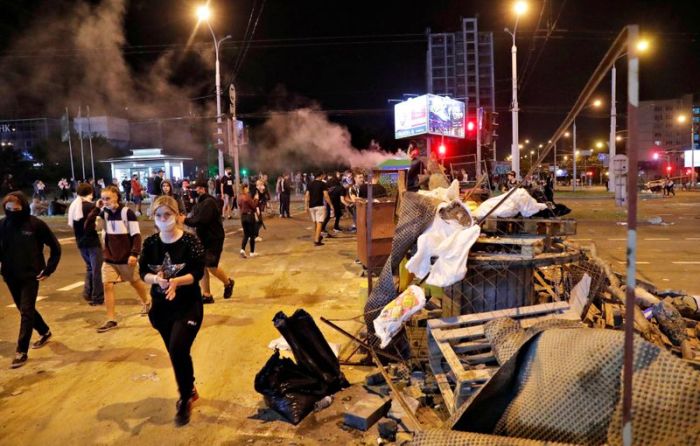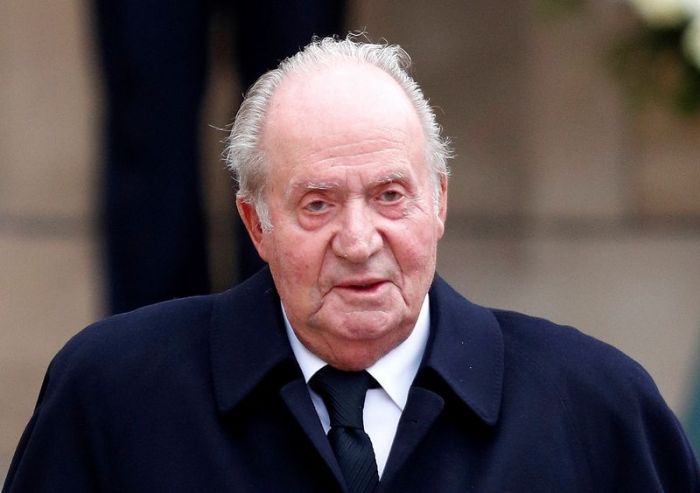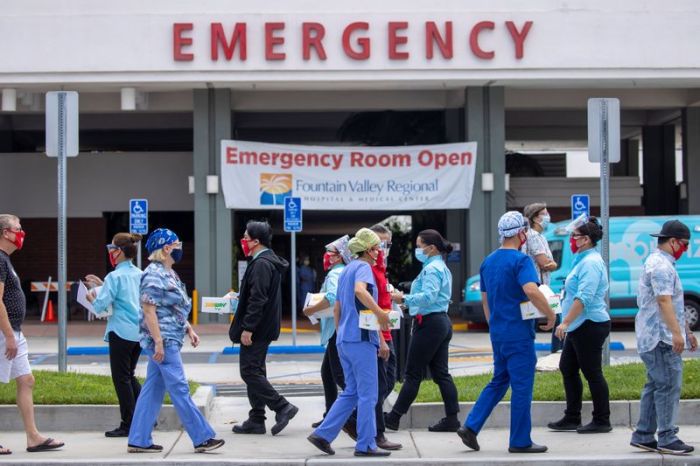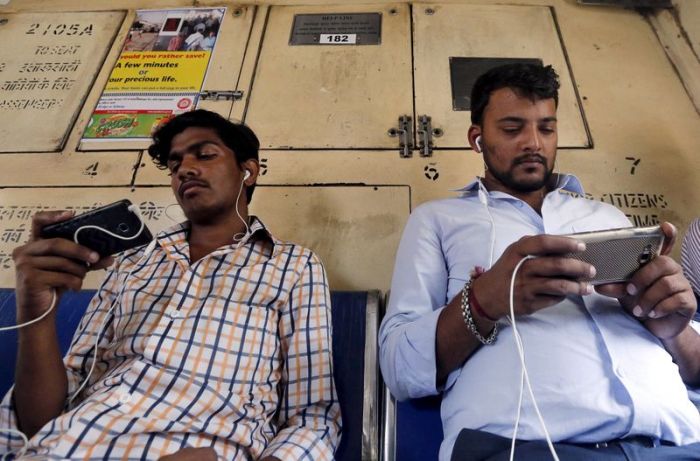BERLIN (Reuters) – Germany’s Social Democrats on Monday proposed Olaf Scholz, the finance minister and the party’s most popular politician, to run to succeed Chancellor Angela Merkel in next year’s national election, when her fourth and final term is expected to end.
The decision marks a comeback for the former Hamburg mayor, who was last year defeated by two left-wing outsiders in the race to lead the Social Democratic Party (SPD), the junior partner in Merkel’s conservative-led ruling coalition.
“The question now is what path Germany takes after the coronavirus crisis,” Scholz told a news conference after the announcement. “Is it one of rebuilding and strengthening our social state, or one that throws it all into question?”
Scholz said that strengthening relations within Europe would be one of his top three priorities as chancellor, adding that the EU leaders’ agreement to help coronavirus-hit member states financially should not be viewed as a one-off event.
He was one of the key architects of a Franco-German proposal for a European Recovery Fund to enable the European Commission to take on joint debt and channel the money to member states worst hit by COVID-19. That plan paved the way for the agreement among EU leaders last month.
It is not yet clear who the conservatives’ candidate for chancellor will be. Merkel, 66, has said she will not run again in the next election, after leading Germany since 2005.
Nevertheless, Scholz faces a stiff challenge: The SPD, which for decades vied with Merkel’s Christian Democrats (CDU) for dominance of German politics, has not won a national election since 2002 and now languishes a distant third in most opinion polls behind the CDU and the Greens.
“We know we have plenty of catching up to do,” Scholz said, when asked about his party’s rivalry with the Greens for leadership of the centre left. “But nobody is out of reach.”
The Social Democrats will be hoping that Scholz’s transformation during the coronavirus pandemic from austere custodian of the public purse to free-spending paymaster in charge of a massive economic stimulus programme will bolster their support in next year’s election.
Scholz promised an agenda focused on respect for essential workers. Rather than making do with the applause meted out during the coronavirus pandemic, “respect and recognition must be expressed in good salaries and wages.”
Gerhard Schroeder, Germany’s last SPD chancellor and a harsh critic of many SPD leaders since he left office in 2005, hailed Scholz’s appointment as “a good decision at the right time.”
Scholz was nominated as chancellor candidate by SPD co-leaders Saskia Esken and Norbert Walter-Borjans, who praised him as a good crisis manager whom Germany could thank for having come through the pandemic in relatively good shape.
(Reporting by Thomas Seythal and Thomas Escritt; Editing by Michelle Martin, Gareth Jones and Hugh Lawson)

